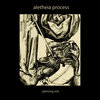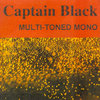aery trouts. by Katja Institute

With the Christian answer it is now possible to understand that there are true moral absolutes. There is no law behind God, because the furthest thing back is God. The moral absolutes rest upon God’s character. The creation as He originally made it conformed to His character. The moral commands He has given to men are an expression of His character. Men as created in His image are to live by choice on the basis of what God is. The standards of morality are determined by what conforms to His character, while those things which do not conform are immoral.
God can know about things that are not actualized. For example, he knew all about Eve, but she was not actualized until He made her. The same thing can be true in the area of morals. When man sins, he brings forth what is contrary to the moral law of the universe and as a result he is morally and legally guilty. Because man is guilty before the Lawgiver of the universe, doing what is contrary to His character, his sin is significant and he is morally significant in a significant history. Man has true moral guilt. This is entirely different from the conception of modern thought, which states that actions do not lead to guilt - a view within which actions become morally meaningless. Even the most degraded actions of sin have no final moral meaning. Ultimately “good” and “bad” actions alike are zero. This is an important factor in modern man seeing man as zero.
The Christian answer begins by saying that man is a moral creature made in the image of the Creator; that there is a law in the universe which, if broken, means that man is culpable. In this view, man is morally significant both as far as God is concerned and as far as his fellowmen are concerned. The modern non-Christian answer denies the legitimacy of moral absolutes, refuses to make any kind of final moral comment on man’s actions, and thus reduces cruel and noncruel acts to the same level. With this answer not only is the concept of sin reduced to less than the biblical concept, but MAN is reduced to less than the biblical concept of guilty man.
If the modern explanation is accepted, then there ceases to be an answer to man’s dilemma - man is as he was in the beginning and ever will be. With the moral (in contrast to the metaphysical) explanation of man’s position in the universe and his consequent dilemma following the Fall, there is a possible solution.
If there is true moral guilt in the presence of a personal God (rather than a metaphysical intrinsic situation of what is and always has been), then perhaps there will be a solution from God’s side. And God says to man that there is a solution. That solution rests upon God saying that He is holy and He is love, and in His love He has loved the world, and He sent His Son. Now in history, there on Calvary’s cross, in space and time, Jesus died. And we should never speak of Jesus’ death without linking it to His person. This is the eternal Second Person of the Trinity. When He died, with the division that man has caused by his revolt now carried up into the Trinity itself, there in expiation, in propitiation and substitution, the true moral guilt is met by the INFINITE value of Jesus’ death. Thus Jesus says: “It is finished.”
Romans 3:26 is a verse that we tend to pass by too quickly in the midst of the structure of the first three chapters of Romans. These chapters tell us first why man is lost, and then the solution in the propitiatory death of Jesus Christ. At this point Paul can say: “that he himself might be just and YET (the force of the Greek construction) the justifier of him who has faith in Jesus.” On the one hand, because of the infinite value of Christ's death, God does not have to surrender His absolutely holy character; and on the other, He does not have to violate man’s significance in order for Him to be able to pardon guilt and restore man’s broken relationship to Himself. This is the very opposite of the denial of antithesis and significance in modern man’s leap into the dark, which says that somehow we must believe, without reason, that God is love. A moral absolute remains, and yet there is a solution to man’s dilemma.
Tracklist
| 1. | 1 2 3 4 5 6 7 8 | 66:00 |
| 2. | 9 10 11 | 43:50 |
| 3. | 12 | 61:01 |
| 4. | 13 14 15 16 | 8:10 |
Credits
source A TRUE STORY · The Hafler Trio






